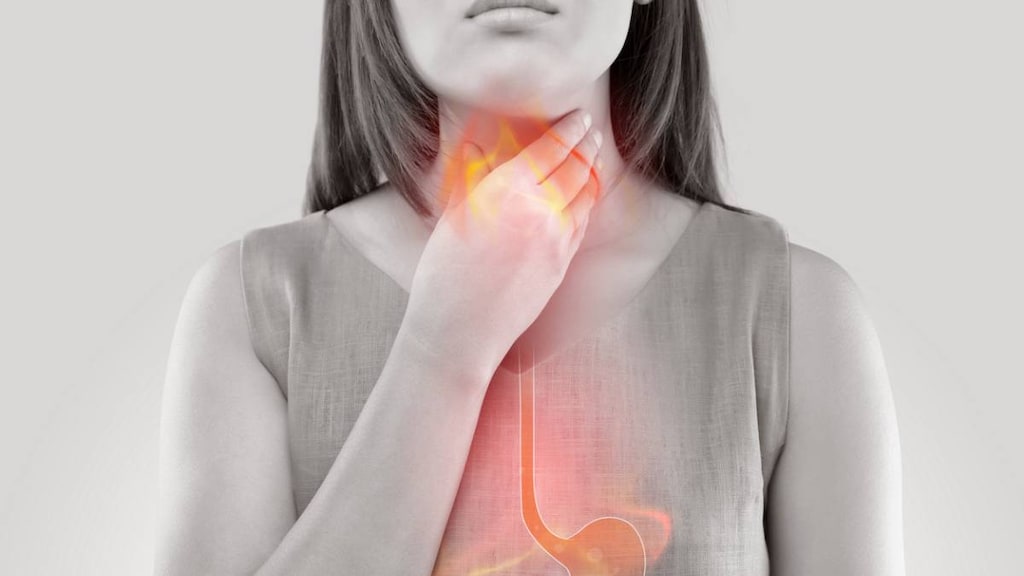
What is a duodenal ulcer?
Duodenal ulcers are small holes or erosions that occur in the lining of your duodenum, which is the first part of your small intestine, immediately beyond your stomach. A duodenal ulcer is a type of peptic ulcer. The other type of peptic ulcer is a stomach (gastric) ulcer and this occurs in your stomach.
What causes a duodenal ulcer and who is more at risk?
Our stomach is lined with a mucus-producing inner layer known as the mucosa. This layer is delicate, and its integrity depends on a careful balance of protective factors (such as the production of mucus) and destructive factors (such as acid production).
The risk of duodenal ulcer is increased in males and in those who:
- Drink coffee
- Have blood type O
- Excessively drink alcohol
- Skip breakfast or more than one meal
- Smoke cigarettes
- With Helicobacter Pylori infection (a common stomach bacterium)
- With a family history of peptic ulcer disease
Other factors that have been associated with an increase in peptic ulcer disease include:
- NSAID use (eg, aspirin, ibuprofen, diclofenac, or ketoprofen)
- Other medical conditions, such as liver disease, Crohn’s disease, or Zollinger-Ellison syndrome
- Physical stress, such as major surgery or burns
What are the symptoms of a duodenal ulcer?
Symptoms vary from person to person, and some people may have no symptoms at all. Abdominal pain is common, and that associated with duodenal ulcers is more likely to worsen on an empty stomach.
Other common symptoms include:
- Bloating or belching
- Blood in the vomit or stools or dark tarry stools
- Chest pain
- Heartburn or indigestion
- Nausea or vomiting
- Tiredness
- Weight loss
Symptoms such as vomiting, severe pain, or blood in the stools are rare with duodenal ulcers and should be reported to your doctor.
Most ulcers occur in the first layer of the inner mucosal lining. A hole that goes all the way through is called a perforation and this will cause severe pain and bleeding. A perforation is a medical emergency.
How is a duodenal ulcer diagnosed?
To help diagnose a duodenal ulcer, your doctor will ask you what medications you take or have been taking, and if you have had peptic ulcers or any other relevant condition in the past. Make sure you mention all the medications you are taking, especially NSAIDs such as aspirin, ibuprofen, diclofenac, or ketorolac.
Your doctor will also conduct a physical examination, to check for bloating or lumps within your abdomen, and to listen for bowel sounds. Make sure you mention any areas of pain or tenderness.
Blood may also be taken to test for infection or anemia and testing may also be conducted for Helicobacter pylori, a bacterium commonly associated with peptic ulcers. Testing usually involves either a breath test, stool sample, or biopsy. To get a clear picture of the inside of your stomach and small intestines, doctors may use an endoscope (a small thin tube with a camera on the end), a series of X-rays (called an upper GI series) and/or a CT scan.
How is a duodenal ulcer treated?
Treatment for duodenal ulcers usually involves a combination of medications that reduce acid secretion, protect the mucosa, and kill H. pylori bacteria (if present).
This allows ulcers to heal and reduces their chance of recurrence. All medications should be taken exactly as prescribed.
Examples of medications that may be considered to treat duodenal ulcers include:
- Antibiotics to kill H. pylori (usually two or three different antibiotics are taken in combination for one to two weeks)
- H2 receptor blockers that reduce stomach acid production (like cimetidine or famotidine)
- Proton pump inhibitors to block stomach acid production (such as esomeprazole, lansoprazole, omeprazole, or pantoprazole)
- Protectants that coat the ulcer and protect it against acid and enzymes, enhancing healing (like sucralfate)
- Bismuth (may help protect the lining and kill the bacteria)
Rarely, surgery may be needed.
If NSAIDs have caused your duodenal ulcer, your doctor may advise you to stop taking them, reduce their dosage, or switch to an alternative medicine. Follow his/her advice. Talk to your doctor before taking antacids as these may reduce the absorption of some other medications.
How can i prevent a duodenal ulcer from developing?
- Don't smoke or chew tobacco
- Limit alcohol
- Avoid all NSAIDs, such as aspirin, diclofenac, ibuprofen, and naproxen. Try acetaminophen instead
- Eat a well-balanced, healthy diet. Avoid late-night snacks or overeating
- Reduce stress

